This website uses cookies so that we can provide you with the best user experience possible. Cookie information is stored in your browser and performs functions such as recognizing you when you return to our website and helping our team to understand which sections of the website you find most interesting and useful.
Annual Report 2019:
World Education incorporates equity and inclusion in all the work that we do, especially in access to quality and affordable education.
Whether we’re working with persons with disabilities in Myanmar and Laos, ensuring girls receive a quality education in Ghana, or providing adult learners the technology needed for full participation, we aim to improve the lives of the most marginalized of society.
Our 2019 annual report highlights the way equity and inclusion are interlaced throughout the work that we do. We create access to services that support people’s individual and collective needs—whether that’s the rural poor, people with disabilities, women, or adult learners.
LETTER FROM THE PRESIDENT
Dear friends,
For over 65 years, World Education has been dedicated to improving the quality of life for children and adults around the world through education. Our mission promotes individual and collective change, and every day we aim to make a positive impact on the lives of the most marginalized in our society.
I have always been struck by inequity, especially in access to quality and affordable education around the world. But I believe it is possible to help alleviate those inequities for those that need it the most. Here at World Education, we have been working toward a better future for everyone, regardless of race, gender, age, sex, or disability, since our founding in 1951.
This year, our annual report highlights the way equity and inclusion are interlaced throughout the work that we do. Our approaches are participatory and multidisciplinary in nature and are designed to build capacity, promote self-sufficiency, and unify communities. We create access to services that support people’s individual and collective needs—whether that’s the rural poor, people with disabilities, women, or adult learners.
Our work would not be possible without our partners, stakeholders, staff, and dedicated community. Your contributions allow us to work consistently towards our mission-—improved quality of life for all. Thank you for your support over the years, and we look forward to seeing what we can accomplish together.
Sincerely,
Joel Lamstein, President
Your contributions allow us to work consistently toward our mission: improved quality of life for all. Here’s a snapshot of all we accomplished together in 2019.
PROJECT HIGHLIGHTS
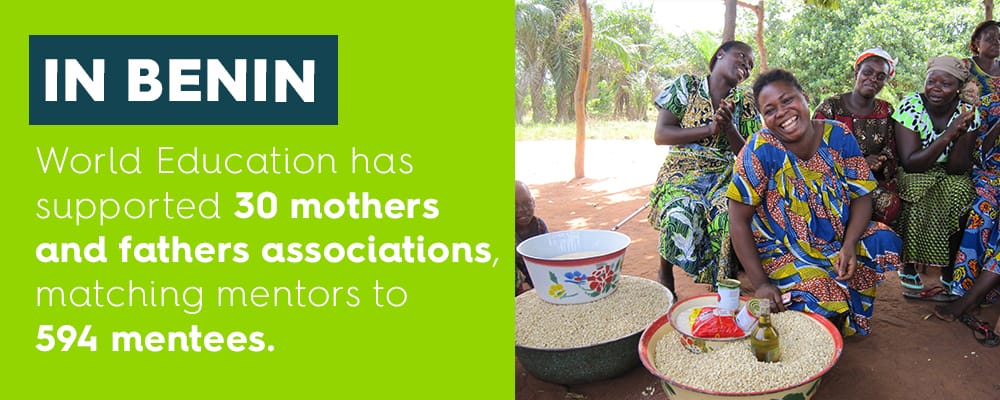
In Benin, through mothers and fathers associations, we have helped establish mentoring partnerships for young girls within project intervention communities.
Mentors are responsible for studying with mentees, ensuring their safety on the way to and from school, notifying teachers of absences, and more. Through this intervention, we have decreased the number of out-of-school girls and school drop-outs.
 The Bantwana Initiative’s Better Outcomes for Children and Youth project in Uganda delivers critical HIV, social protection, and economic strengthening services to build resilience in vulnerable families and mitigate the risks and effects of HIV and violence. We also established demonstration gardens and kitchen gardens to enhance food security for vulnerable families.
The Bantwana Initiative’s Better Outcomes for Children and Youth project in Uganda delivers critical HIV, social protection, and economic strengthening services to build resilience in vulnerable families and mitigate the risks and effects of HIV and violence. We also established demonstration gardens and kitchen gardens to enhance food security for vulnerable families.
 In Nepal, where the latest census listed 123 different languages, many minority language-speakers and children with disabilities do not have access to books that support their learning. To fill this gap, we created more than 1,400 digital books in eight languages and are training linguistic minorities and people with disabilities to create stories that serve children like them who have not had access to learning materials.
In Nepal, where the latest census listed 123 different languages, many minority language-speakers and children with disabilities do not have access to books that support their learning. To fill this gap, we created more than 1,400 digital books in eight languages and are training linguistic minorities and people with disabilities to create stories that serve children like them who have not had access to learning materials.
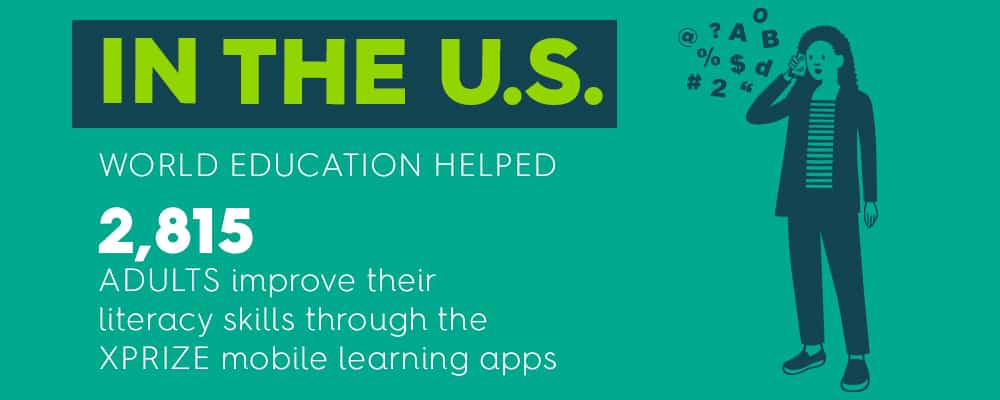 Last year, we spearheaded the DigitalUS coalition to advance digital literacy and equity for 32 million adults in the U.S. who do not have access to the internet, digital skills, or training. DigitalUS strives to ensure that all adults in the U.S. have the digital skills to thrive in work and life by 2030.
Last year, we spearheaded the DigitalUS coalition to advance digital literacy and equity for 32 million adults in the U.S. who do not have access to the internet, digital skills, or training. DigitalUS strives to ensure that all adults in the U.S. have the digital skills to thrive in work and life by 2030.
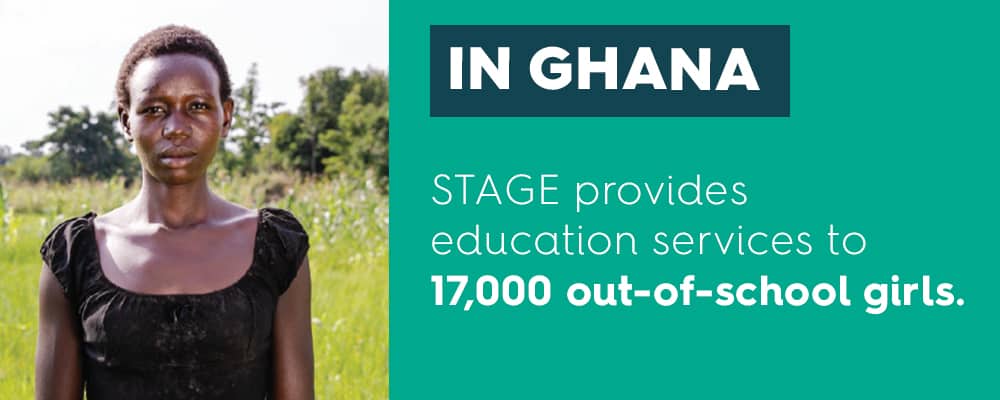 The Strategic Approaches to Girls’ Education (STAGE) project provides formal and nonformal education services to systematically marginalized girls in Ghana. The girls in the program are highly vulnerable due to poverty, early marriage, pregnancy, disabilities, and abuse—STAGE builds support structures within their families and communities and through interventions in schools where teachers and administrators are trained in inclusive practices and classrooms are adapted to meet the needs of girls, especially those who have disabilities.
The Strategic Approaches to Girls’ Education (STAGE) project provides formal and nonformal education services to systematically marginalized girls in Ghana. The girls in the program are highly vulnerable due to poverty, early marriage, pregnancy, disabilities, and abuse—STAGE builds support structures within their families and communities and through interventions in schools where teachers and administrators are trained in inclusive practices and classrooms are adapted to meet the needs of girls, especially those who have disabilities.
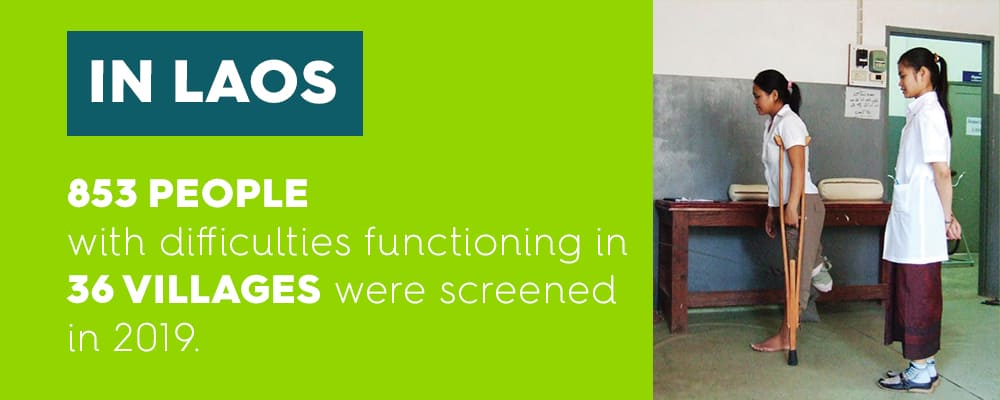 Persons with disabilities in Laos experience barriers to their full participation in society, often resulting in lower school attendance rates and living standards. World Education’s USAID Okard (“Opportunity”) project promotes disability inclusion through three components: health, economic empowerment, and stakeholder engagement.
Persons with disabilities in Laos experience barriers to their full participation in society, often resulting in lower school attendance rates and living standards. World Education’s USAID Okard (“Opportunity”) project promotes disability inclusion through three components: health, economic empowerment, and stakeholder engagement.
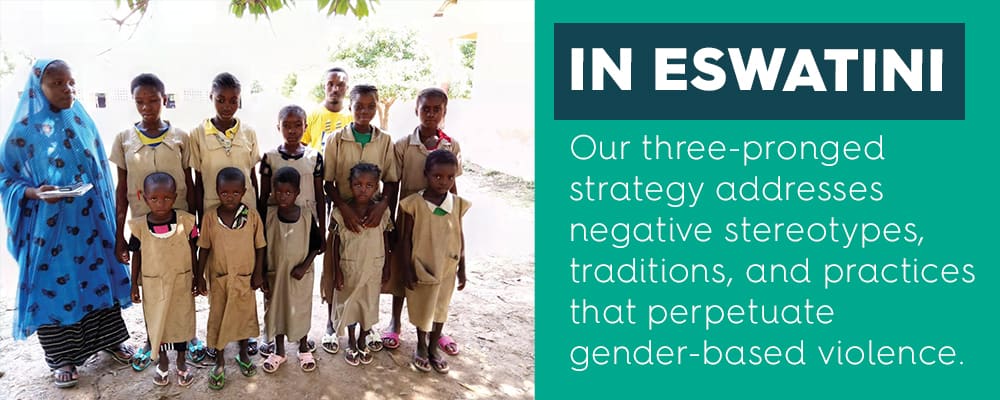 Violence against women and girls is widespread in Eswatini, and is even more severe for those living with disabilities. World Education’s Bantwana Initiative is partnering with the Swaziland Action Group Against Abuse to identify and link persons with disabilities to abuse prevention, reduction, and response resources, with a special focus on the country’s refugee population.
Violence against women and girls is widespread in Eswatini, and is even more severe for those living with disabilities. World Education’s Bantwana Initiative is partnering with the Swaziland Action Group Against Abuse to identify and link persons with disabilities to abuse prevention, reduction, and response resources, with a special focus on the country’s refugee population.
Equity and inclusion are woven into our work at every level to create access to opportunity. Thank you for your ongoing support as we work to improve lives through education—this work would not be possible without you.
Read the full 2019 World Education annual report.

